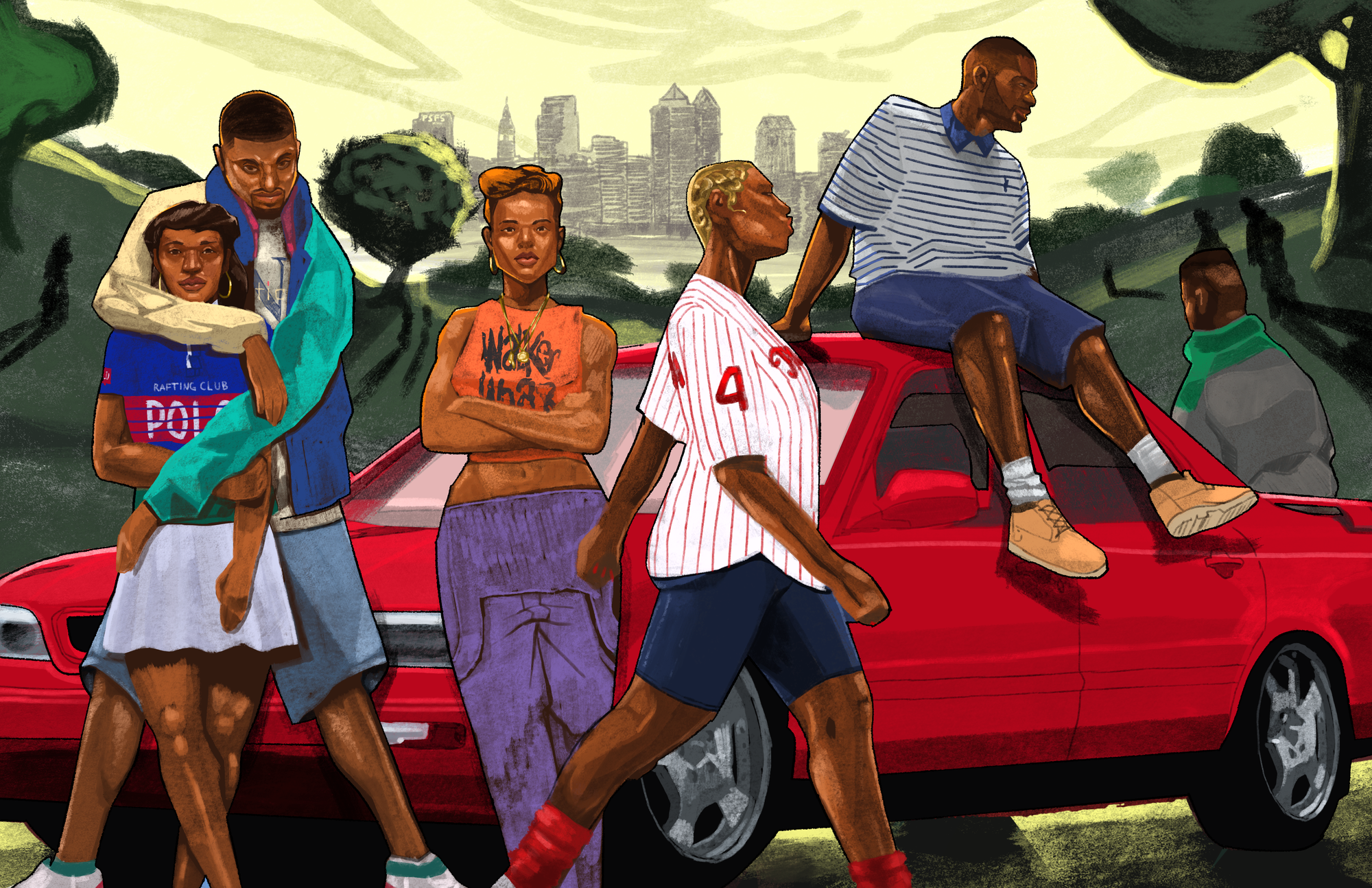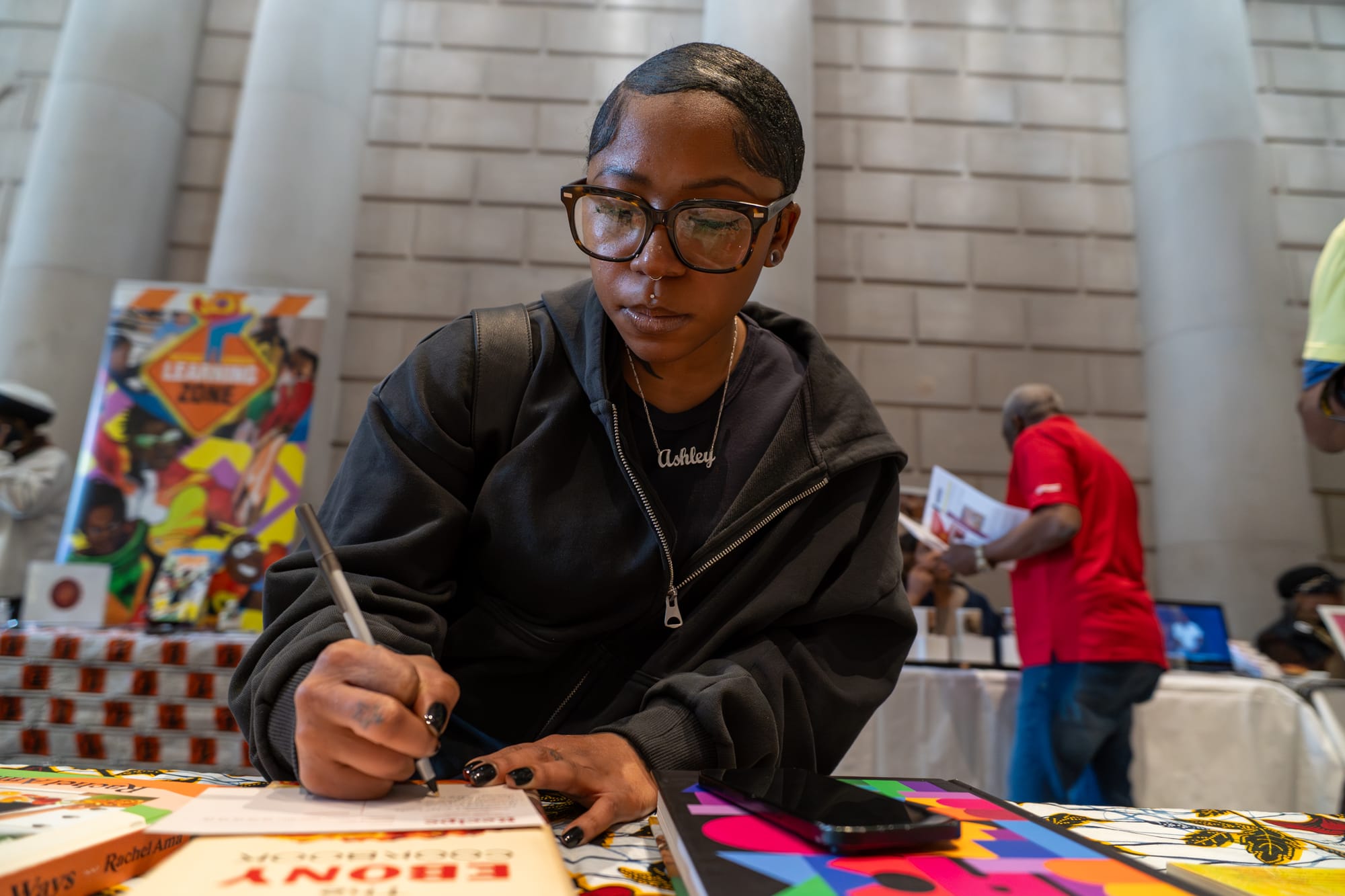The Tariff Trap: How Trump's Trade War Could Gut Black-Owned Businesses
Donald Trump is betting big on tariffs.
Donald Trump is betting big on tariffs. In a move that echoes his first term and amplifies it with more bravado, the former president has proposed a sweeping 10% universal tariff on all imports, with even steeper penalties for goods from China and the European Union. A tariff is a tax a country puts on goods coming into their country from other countries.
His rationale? That these levies will jumpstart domestic manufacturing, punish trading partners who “cheat,” and supposedly protect the American worker. But if you look beyond the MAGA stagecraft, you’ll find a truth that’s been consistent throughout American history: Black small business owners are once again poised to pay the steepest price for a policy designed without them in mind.
Tariffs, in theory, sound protective. But in practice, they operate like a regressive tax, driving up the cost of everything from raw materials to finished goods. And that cost doesn’t just hit Wall Street or the Fortune 500.
It slams into the smallest, most vulnerable operators: the food truck owner trying to keep prices low, the fashion entrepreneur importing fabric, the beauty supply shop whose margins are already threadbare.
For many Black-owned businesses—already navigating the minefield of discriminatory lending—these tariffs aren’t a blip. They’re a wrecking ball.
Imagine a Black-owned café that prides itself on offering Afro-Caribbean flavors using imported spices and specialty goods. The new tariffs could spike costs by 10, 20, even 30 percent depending on the origin of the ingredients.
That kind of squeeze puts owners in an impossible bind: either raise prices and risk losing customers, or eat the costs and risk going under. There is no safety net here, no friendly bank manager willing to float a loan. Just the cold math of staying in business in a country that loves Black culture but rarely funds Black enterprise.
And it’s not just ingredients or inventory. Supply chains don’t bend to presidential slogans, they break. Tariffs are friction, and friction slows everything down. Retaliatory measures from other nations, port bottlenecks, sudden price spikes, these are not hypothetical scenarios. They are predictable consequences. For small businesses already stretching every dollar, that unpredictability becomes existential. You can’t plan for next year when you don’t know if you can stock shelves next month.
Some might argue that the tariffs will encourage domestic production. Maybe. But even if that shift materializes, which economists doubt, it won’t happen quickly, and it won’t happen equitably. The idea that a Black-owned candle company in Philadelphia will suddenly benefit from a revitalized American wax industry is a fantasy. What’s far more likely is that bigger firms with deeper pockets will absorb the shocks, shift suppliers, and raise prices in tandem. Meanwhile, small Black-owned shops will struggle to adapt and be punished by customers who can’t or won’t pay more.
The pain doesn’t stop with business owners. When small Black businesses suffer, entire ecosystems suffer. These are the places that hire local, that mentor young workers, that donate to church drives and sponsor little league teams. Their closures ripple outward. In neighborhoods already facing economic disinvestment, losing even one or two anchor businesses can drain vitality and opportunity for years.
We also have to place these tariffs in context. Black entrepreneurs are still recovering from the disproportionate blow dealt by COVID-19. Many weathered shutdowns, lost revenue, and slow federal aid. Some never reopened. Others are still clawing their way back to pre-pandemic levels. To saddle them now with higher costs and fewer options is a policy choice, a cruel one. It prioritizes the appearance of economic nationalism over the reality of racial equity.
If the government insists on barreling ahead with protectionist trade policy, it must also provide protections for those who are bound to be harmed. That means targeted aid, technical assistance, access to capital, and a seat at the table when decisions are being made.
Black-owned businesses don’t need pity. They need policy that sees them. That values them. That understands their unique challenges and refuses to ignore them. If tariffs are the strategy, then mitigation must be the responsibility.
Because what’s at stake isn’t just balance sheets—it’s the future of Black economic power. And we’ve sacrificed that future too many times before.




